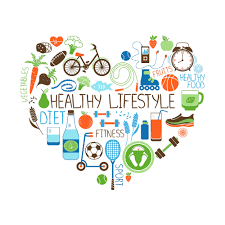What is depression?
- Healty Lifestyle

- Sep 27, 2022
- 3 min read
Depression is classified as a mood disorder. It may be described as feelings of sadness, loss, or anger that interfere with a person’s everyday activities.
It’s also fairly common. Data from the Centers for Disease Control and PreventionTrusted Source estimates that 18.5 percent of American adults had symptoms of depression in any given 2-week period in 2019.
Though depression and grief share some features, depression is different from grief felt after losing a loved one or sadness felt after a traumatic life event. Depression usually involves self-loathing or a loss of self-esteem, while grief typically does not.
In grief, positive emotions and happy memories of the deceased typically accompany feelings of emotional pain. In major depressive disorder, the feelings of sadness are constant.
People experience depression in different ways. It may interfere with your daily work, resulting in lost time and lower productivity. It can also influence relationships and some chronic health conditions.
Conditions that can get worse due to depression include:
arthritis
asthma
cardiovascular disease
cancer
diabetes
obesity
It’s important to realize that feeling down at times is a normal part of life. Sad and upsetting events happen to everyone. But if you’re feeling down or hopeless on a regular basis, you could be dealing with depression. Depression is considered a serious medical condition that can get worse without proper treatment.
Depression symptoms
Depression can be more than a constant state of sadness or feeling “blue.”
Major depression can cause a variety of symptoms. Some affect your mood and others affect your body. Symptoms may also be ongoing or come and go.
General signs and symptoms
Not everyone with depression will experience the same symptoms. Symptoms can vary in severity, how often they happen, and how long they last.
If you experience some of the following signs and symptomsTrusted Source of depression nearly every day for at least 2 weeks, you may be living with depression:
feeling sad, anxious, or “empty”
feeling hopeless, worthless, and pessimistic
crying a lot
feeling bothered, annoyed, or angry
loss of interest in hobbies and interests you once enjoyed
decreased energy or fatigue
difficulty concentrating, remembering, or making decisions
moving or talking more slowly
difficulty sleeping, early morning awakening, or oversleeping
appetite or weight changes
chronic physical pain with no clear cause that does not get better with treatment (headaches, aches or pains, digestive problems, cramps)
thoughts of death, suicide, self-harm, or suicide attempts
The symptoms of depression can be experienced differently among males, females, teens, and children.
Males may experience symptoms related to their:
mood, such as anger, aggressiveness, irritability, anxiousness, or restlessness
emotional well-being, such as feeling empty, sad, or hopeless
behavior, such as loss of interest, no longer finding pleasure in favorite activities, feeling tired easily, thoughts of suicide, drinking excessively, using drugs, or engaging in high-risk activities
sexual interest, such as reduced sexual desire or lack of sexual performance
cognitive abilities, such as inability to concentrate, difficulty completing tasks, or delayed responses during conversations
sleep patterns, such as insomnia, restless sleep, excessive sleepiness, or not sleeping through the night
physical well-being, such as fatigue, pains, headache, or digestive problems
Females may experience symptoms related to their:
mood, such as irritability
emotional well-being, such as feeling sad or empty, anxious, or hopeless
behavior, such as loss of interest in activities, withdrawing from social engagements, or thoughts of suicide
cognitive abilities, such as thinking or talking more slowly
sleep patterns, such as difficulty sleeping through the night, waking early, or sleeping too much
physical well-being, such as decreased energy, greater fatigue, changes in appetite, weight changes, aches, pain, headaches, or increased cramps
Children may experience symptomsTrusted Source related to their:
mood, such as irritability, anger, rapid shifts in mood, or crying
emotional well-being, such as feelings of incompetence (e.g., “I can’t do anything right”) or despair, crying, or intense sadness
behavior, such as getting into trouble at school or refusing to go to school, avoiding friends or siblings, thoughts of death or suicide, or self-harm
cognitive abilities, such as difficulty concentrating, decline in school performance, or changes in grades
sleep patterns, such as difficulty sleeping or sleeping too much
physical well-being, such as loss of energy, digestive problems, changes in appetite, or weight loss or gain















Comments